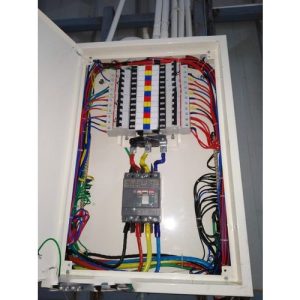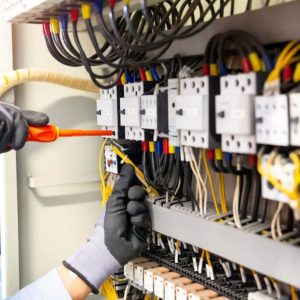In the world of modern technology and innovation, it’s fascinating to explore the myriad applications of materials that enhance our daily lives. One such material that has revolutionized various industries is the Roll-to-Roll (R2R) Metallized Film. This unassuming yet technologically advanced material has found its way into an array of applications, from food packaging to electronics and solar panels. In this blog, we’ll delve into the captivating world of R2R Metallized Film, uncovering its composition, manufacturing process, and the diverse sectors it influences.
What is R2R Metallized Film?
R2R Metallized Film, also known as metallized film or metallized polyester film, is a flexible substrate used for a range of applications due to its remarkable properties. It is typically composed of a polyester (PET) film base that is coated with a thin layer of metal, commonly aluminum, creating a reflective and conductive surface. This process is known as metallization and can be done through various methods, such as vacuum metallization or sputtering.
Manufacturing Process
The creation of R2R Metallized Film is a highly specialized process that involves precision and expertise. Here are the fundamental steps involved in its production:
- Substrate Preparation: The base material, which is usually a PET film, is first prepared and treated to ensure it is free of any impurities and defects. This clean substrate provides an ideal surface for the subsequent metallization process.
- Metallization: The heart of the process involves depositing a thin layer of metal, typically aluminum, onto the substrate. This is achieved through methods like vacuum metallization or sputtering, which allow for an even and controlled deposition of the metal layer. The thickness of this metal layer can vary depending on the intended application.
- Post-Processing: After metallization, the film may undergo additional treatments to enhance its properties. This could include the application of protective coatings, adhesives, or other surface treatments to optimize performance.
Applications of R2R Metallized Film
R2R Metallized Film’s versatility is showcased by its extensive range of applications. Here are some notable areas where it plays a crucial role:
- Packaging: R2R Metallized Film is widely used in food packaging, where its exceptional barrier properties help maintain the freshness and shelf life of products. It provides an effective moisture and oxygen barrier, keeping food items safe and intact.
- Electronics: In the electronics industry, metallized films are employed in capacitors, printed circuit boards, and flexible circuits. Their conductive properties make them essential for ensuring electrical connectivity.
- Solar Panels: Metallized film is used in solar panels as a reflector to improve the efficiency of light capture and energy conversion. It enhances the performance of photovoltaic modules.
- Decorative Materials: Metallized films are used in decorative materials, such as gift wrapping and holographic stickers, to create an attractive, shiny, and eye-catching appearance.
- Reflective Insulation: These films are used in construction and automotive industries to create reflective insulation materials that help control heat transfer and energy efficiency.
- Flexible Packaging: Metallized films find applications in flexible packaging, including pouches and bags, providing an attractive and functional solution for various consumer products.
Benefits of R2R Metallized Film
R2R Metallized Film offers a plethora of benefits that contribute to its widespread use:
- Barrier Properties: Its exceptional moisture and oxygen barrier properties make it perfect for protecting sensitive products.
- Conductivity: The metal-coated film’s conductivity is crucial in electronics and electrical applications.
- Reflectivity: Its reflective nature is valuable in enhancing energy efficiency and performance in solar panels and insulation.
- Versatility: R2R Metallized Film can be customized in terms of metal coating thickness, appearance, and other properties to suit specific applications.
- Sustainability: Metallized films are often recyclable and contribute to sustainable packaging solutions.





